The Versatility of Garden Pots
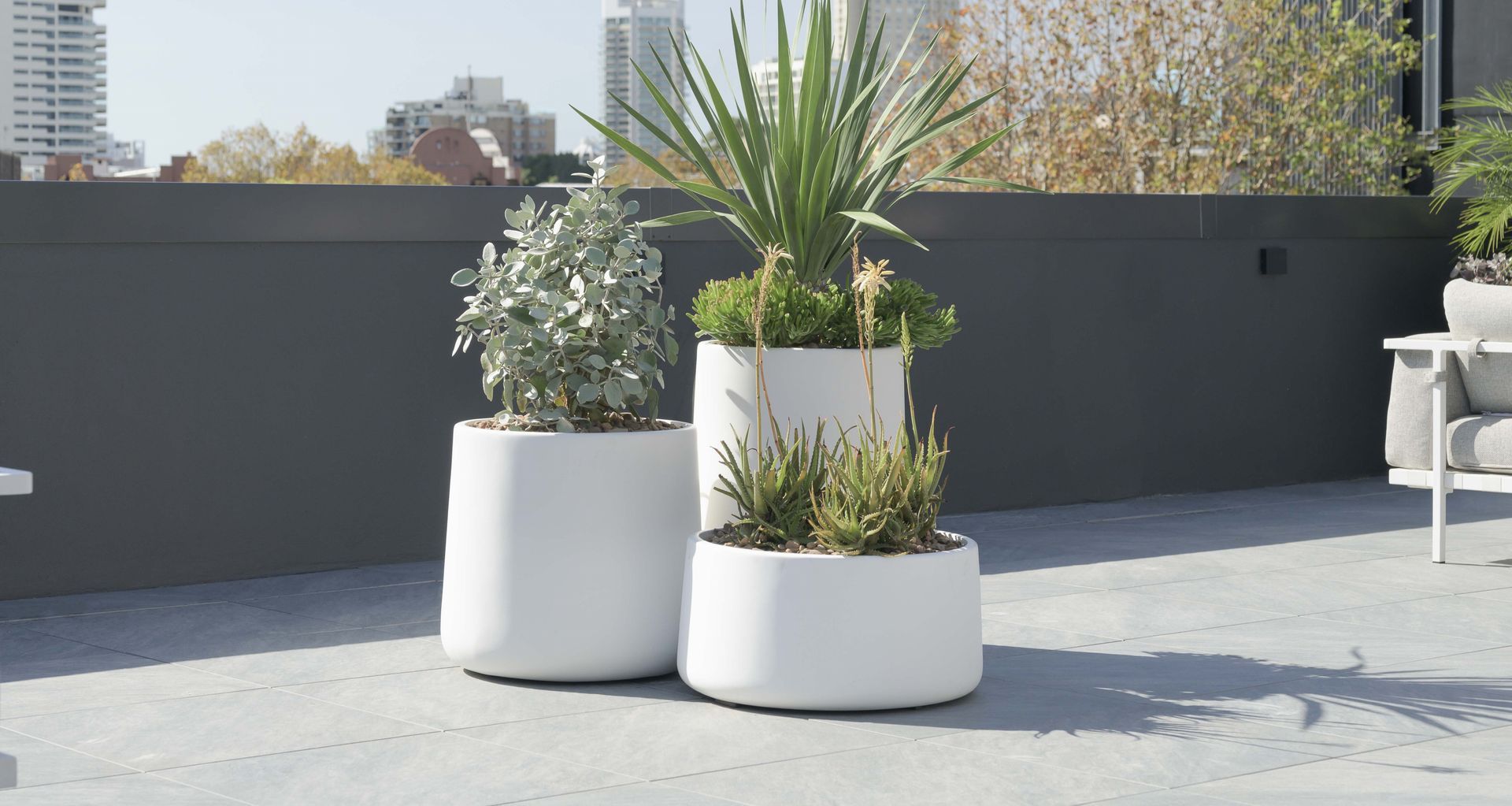
Here’s what to consider when selecting the right pots and planters for your space.
Big is Best
Large garden pots create visual clarity. Fewer, larger pieces reduce clutter and provide structure. Whether you're styling outdoor pots, planning a green entry for an office, or refreshing a balcony, large pots act as grounding elements that make spaces feel more expansive.
From a practical point of view, bigger planters allow for healthier root systems, especially for small trees, succulents, or drought-tolerant natives. Just keep weight in mind, lightweight planters made from durable materials like fibreglass are ideal for rooftops, balconies, or indoor use.
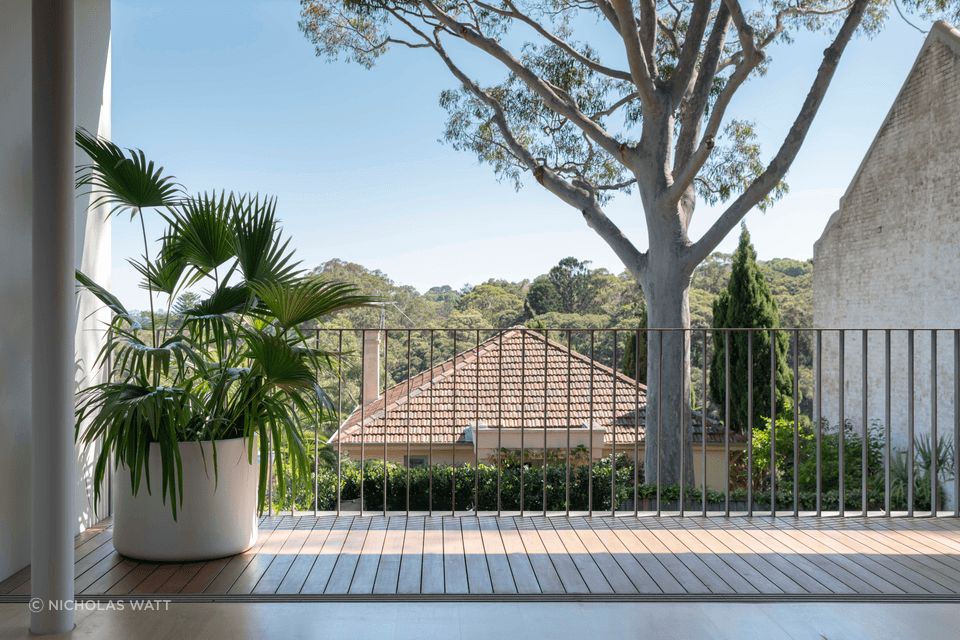
Stand-Alone vs. Clustered Displays
A well-placed tall ribbed planter or tapered pot can function as a sculptural focal point. Choose strong, upright plants like Bergonias, cactus or bamboo to anchor the form.
If you’re leaning into a more layered aesthetic, try cluster pots. Start with a large planter and add smaller cylinder pots or table planters to build depth and contrast. Using odd numbers (three, five, etc.) tends to create the most natural rhythm. For consistency, keep finishes cohesive, lightweight fibreglass pots in neutral tones work well across multiple styles. And if you want to make life easy, Hibernate has curated three cluster pot variations, which are available to purchase as a package on our website.
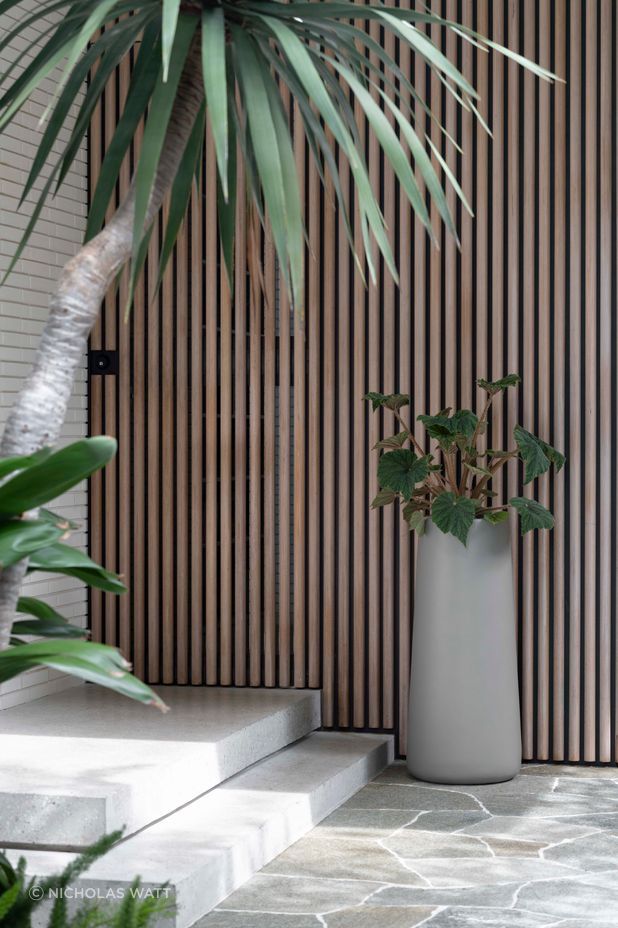
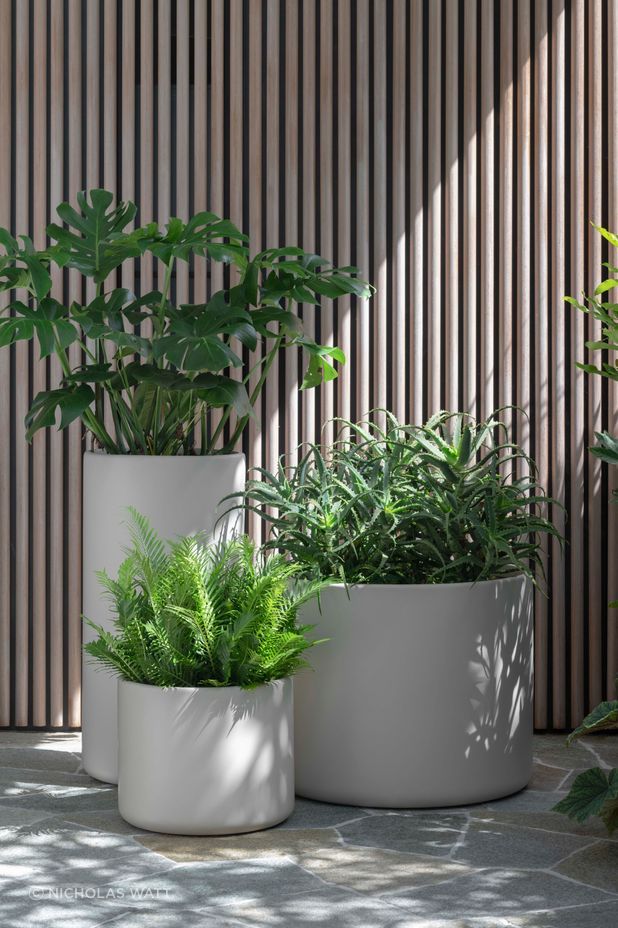
Styling to Suit Your Space
Let your indoor design sensibility guide your outdoor pot selection. A modern, minimalist home might call for monochrome garden pots with clean lines. A more traditional or organic look might benefit from ribbed, textured, or aged finishes.
In tighter areas like balconies, choose slimline or rectangular planters to maximise floor space. For poolside styling, mixing tall pots, geometric forms, and softer curves can help balance hardscaping. Indoors, large pots in living areas or planters in shared spaces can create a calm, biophilic moment.
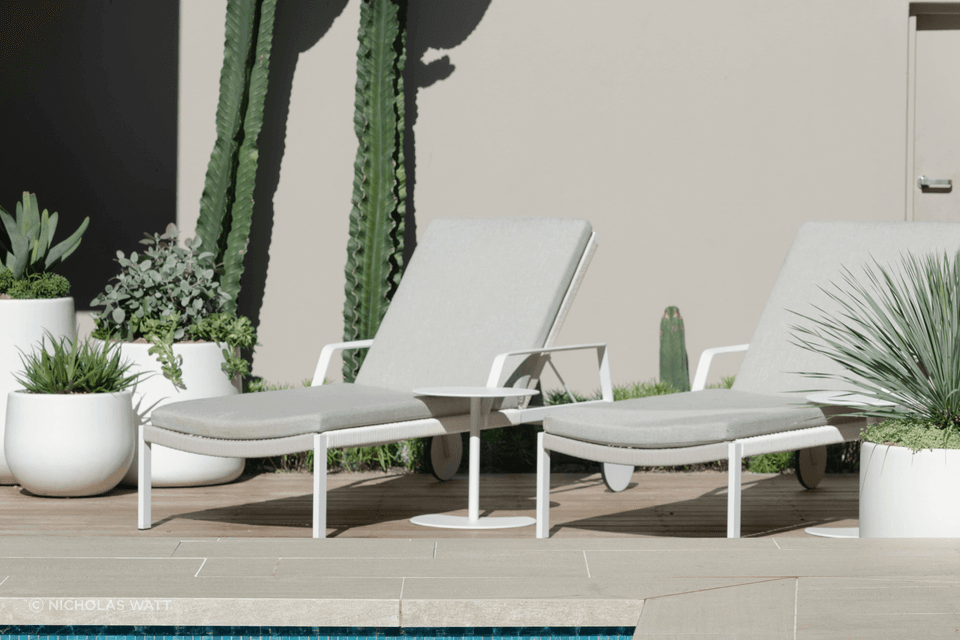
Choosing the Right Plants
To achieve a balanced look, aim for a pot that is at least as visually dominant as the plant itself - this ensures harmony between the two elements while also allowing enough room for healthy root growth.
Some suggested pairings:
- Lush and sculptural: Birds of paradise, agaves, imperial bromeliads
- Tall and narrow: Bamboo, olives, cactus
- Trailing and soft: Rosemary, Dichondra ‘Silver Falls’
- Hardy and low maintenance: Euphorbias, succulents, native grasses
Wherever you're placing your plant pots outdoors or inside, always factor in natural light and exposure. For sun-soaked areas, go with resilient, drought-tolerant varieties. In shaded spots, look for plants that thrive in indirect light.
Caring for Potted Plants
Unlike plants in the ground, potted plants rely entirely on you for nutrients and water. They dry out more quickly, so regular monitoring is key. Use a high-quality potting mix, mulch the surface to retain moisture, and feed plants as needed. Moving pots around to adjust to seasonal changes in light and temperature will also help keep them thriving.
From large indoor plant pots to outdoor planters that define courtyards, garden pots remain one of the most adaptable tools in styling both indoor and outdoor environments. Whether you prefer the bold presence of a standalone pot, the layered effect of a curated cluster, or practical choices like lightweight pots for upper-level terraces, the right selection can quietly elevate any space.
